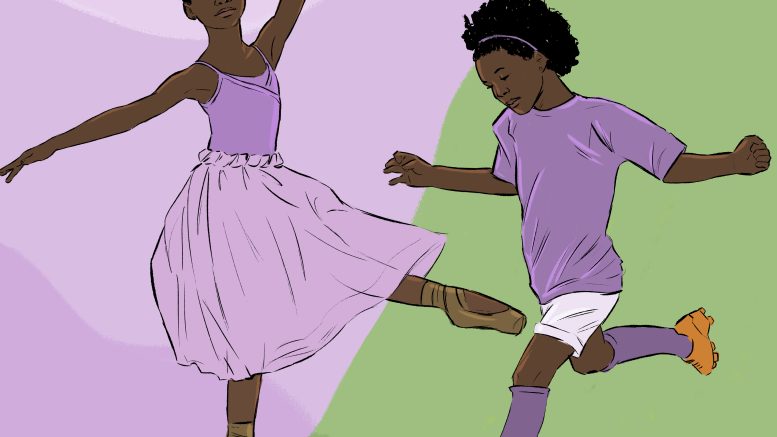As a lifelong athlete, Leisha Strachan knows firsthand the impact a good coach can have. She turned her love of sport into her research focus at the University of Manitoba, where she studies coaching strategies for positive youth development through sport. Strachan’s mentorship of the next generation of athletes was recognized by members of her community and in 2021 she was listed in 100 Accomplished Black Canadian Women among the 2022 honorees. This publication highlights the social, educational, political and professional accomplishments of women to inspire Black girls and women to pursue their passions.
Strachan is a professor in the faculty of kinesiology and recreation management. Her research investigates coaching to encourage positive behaviours with the goal of building up skills that will benefit the athlete throughout their life.
“I’m really specifically interested in coaching behaviours and how we train coaches to not only develop the physical aspects that we expect in sport, but also how coaches can assist in more deliberate delivery of the development of psychosocial skills within sports contexts,” Strachan said.
Strachan explores the intersections between cultural identity and positive youth development. One of her previous projects examined how to make sport programs more culturally relevant and meaningful to Indigenous youth.
She is currently working on Project SCORE (Sport COnnect and REspect), a resource for coaches, athletes and parents. The project aims to give parents and coaches the tools they need to create more meaningful experiences for young athletes.
The project emphasizes development through the “four Cs:” competence, confidence, connection and character. The project’s website provides easy activities for coaches to follow with their athletes to develop each of the four Cs. In addition to providing online resources, the project will recruit 50 coaches to participate in a workshop series and provide their athletes with follow-up questionnaires to assess their outcomes.
“Score.ca is a website that is geared to giving coaches the tools that they need to create more meaningful experiences through sport through the fourCs,” Strachan said.
Strachan is in the unique position of being able to directly apply her research in her personal life. She is a coach herself in the sport of baton twirling, a sport typically practised by mostly women and girls. Strachan wants to use her influence as coach to be a positive role model for her athletes andbelieves that the best legacy she can leave is to inspire her students to become role models themselves.
Strachan noted the skills she seeks to instill in her athletes can be learned in any structured activity, including the performing arts. This inspired her to found the ANANSI School for the Performing Arts in 2009. The school is a place for young people to explore dance, drama and music using Caribbean and African culture as a lens. One of her goals in establishing the school was to help pupils develop confidence and pride in who they are.
“Pride in themselves, pride in their culture,” said Strachan.
A first-generation Black Canadian, Strachan said her parents instilled in her a sense of the importance of community and culture while she was growing up. As Grenadian immigrants, they encouraged her to join cultural clubs and dance groups, all of which made lasting impressions and connected her with her community.
The importance of representation is something Strachan acknowledges in her professional and personal life, but she said the U of M can do more to highlight its own Black professors, students and alumni.
“Our students deserve to see more of that representation in all the materials that they look at at the university, and not just a token face here and there, but actually where they can learn about someone’s stories and being able to connect,” Strachan said.
One example Strachan noted was that the U of M was slow to highlight Black faculty members on the university’s homepage during Black History Month. Once she and other faculty members pointed out there was no acknowledgement of Black history or achievements, the university quickly corrected the oversight. However, Strachan said the belated efforts demonstrate the lack of intention behind the university’s messaging.
Strachan knows firsthand how hard it can be for international students and students of colour to be on a campus where they don’t see themselves represented. This absence can affect a student’s sense of belonging and place.
“You can go through a whole degree and never come across a professor that looks like you,” said Strachan.
This can weigh on a Black student’s mind, yet not be as obvious for their non-Black colleagues. Strachan says the best way forward is more intentionality across all levels of communication, from administration and faculty to student groups.
“There’s so much opportunity,” said Strachan.
“We miss that when we don’t plan for it.”



